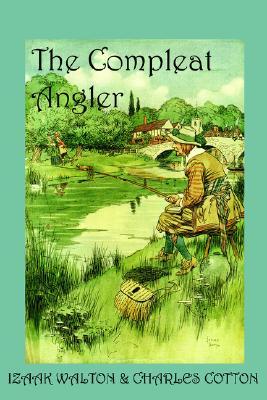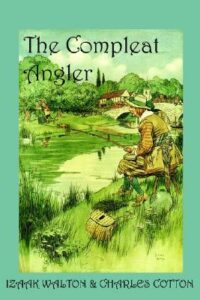Chapter XVI — The Compleat Angler
byChapter XVI – The Compleat Angler invites readers into an intimate gathering where the line between nature and friendship gently fades. After a day spent by rivers and streams, Piscator, Venator, Peter, and Coridon return not merely with fish but with renewed spirits. Their meeting at the doorway of a humble lodging signals a pause—not of effort, but of the body yearning for food, drink, and companionship. Though Piscator initially aims to teach more about angling techniques for roach and dace, the presence of his friends reshapes the moment. Teaching is delayed in favor of fellowship, and the shift feels entirely natural. This balance of knowledge and shared pleasure is what defines the soul of angling for these men. What might have been a quiet evening becomes instead a celebration of connection and tradition.
Once seated, the tiredness of the day is softened by the joy of food and shared presence. There is warmth in the small rituals that follow—songs sung without rehearsal, laughter that rises without effort, and memories shaped by the gentle rhythm of the river. Piscator’s willingness to offer a song transforms the meal into a form of storytelling. His verses, sung without pomp, extol a life lived closely with nature, where troubles dissolve in the quiet flow of water and the patient wait of a line. For Piscator, angling is not a sport but a philosophy—a choice to seek joy not in conquest but in contentment. His words, simple yet rhythmic, echo the day’s lessons without repeating them directly. The song becomes a bridge between experience and reflection.
Venator listens with appreciation, but also adds his thoughts. He speaks of the solitude he felt earlier, not with sadness but with gratitude. Time alone had not been idle; it was filled with thought, with wonder, and with a deeper awareness of his surroundings. This reflective pause in the dialogue reinforces a theme that runs like a current through the book: solitude is not the absence of companionship but the presence of self. In the quiet hours, a person can examine life gently, away from noise and urgency. For Venator, the lesson is not just about fishing, but about living—patiently, quietly, and with eyes open to beauty.
Peter and Coridon, though less philosophical, offer their part in the evening’s harmony through conversation and song. Their contributions remind readers that the joy of the angler’s life is not measured solely by introspection but by community as well. The songs they share are rustic and sincere, filled with cheer but never hollow. They represent the grounded wisdom of those who know the value of work, rest, and a well-cooked meal. Their laughter, unaffected and whole, stands as a companion to Piscator’s more measured tone. Together, they form a chorus of perspectives on what it means to live well—through effort, reflection, and fellowship.
In the natural rhythm of this chapter, the lines between instruction and leisure blur. Piscator postpones his teaching not to avoid it, but because he understands that timing is part of wisdom. Teaching about roach and dace can wait, but the fleeting moment of friendship should be grasped. Here lies a deeper truth: not all lessons are found in lines cast or fish caught. Some are found in conversation, in shared silence, or in a song offered without expectation. In this way, even moments of rest become instructive.
The chapter ends not with a grand conclusion but with contentment, the kind that settles into bones rather than minds. No catch is held aloft. No profound speech is made. Instead, the friends continue to enjoy their evening, each enriched in his own way. The work of the day and the warmth of the night blend seamlessly. In the end, the lesson isn’t just about fishing. It’s about living—about knowing when to act and when to pause, when to speak and when to simply enjoy what is. And perhaps, that is the most valuable wisdom an angler—or anyone—can receive.


